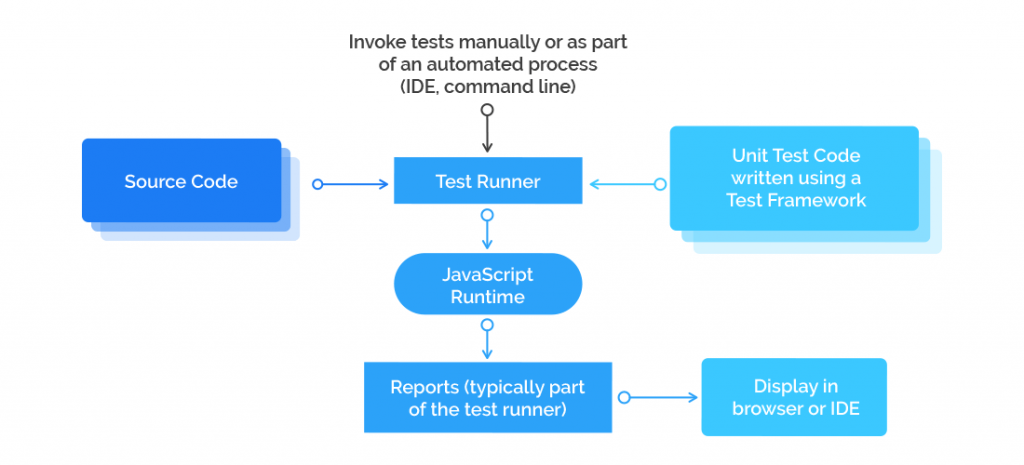Testing framework plays a crucial role in the success of any automated testing process. Choosing the right test automation framework is important as it will maximize the test coverage and improve test efficiency which means a better return on investment.
There are some key points you need to keep in mind while choosing a suitable python testing framework. The framework should justify your testing needs and it should be easy to use. Check if the framework has integrations with other tools and frameworks that you might use. The features, support, stability, and extensibility are also important. So let’s compare the most popular python testing frameworks to make it easier for you to choose the right one.
Robot framework
It is still the most popular python testing framework that uses a keyword-driven testing approach and is used for acceptance testing. To run Robot you will have to install python 2.7.14 or any later version, python package manager, and a development framework like Pycharm.
Advantages
- Opensource
- Platform independent
- No need to learn a programming language to write Robot Framework test cases
- Automatic report generation after executing each built
- Supports behavior-driven, data-driven and keyword-driven approaches
- Easy installation
Disadvantages
-
- Not enough support for parallel testing
- It’s difficult to create customized HTML reports
Gauge
It is an opensource tool developed by the team that made Selenium. Gauge is immensely useful while integrating continuous testing in the CI/CD pipeline. It is gaining popularity as it supports many plugins like python runner, IDE plugins, build management, java runner, etc.
Advantages
-
-
- Quick defect detection
- Easy to write test cases
- Supports multiple programming languages
- Command-line support
- Supports all major plugins
- Cross-browser tests can be automated
-
Disadvantages
-
-
- It is relatively new so it will evolve in the coming years
-
Pytest
Although Pytest is used for different types of testing, it is more preferred for functional and API testing. There are no prerequisites needed for Pytest, just knowledge of python will be enough to get started. It has a simple syntax which makes test execution easier.
Advantages
-
-
- Supports Fixtures and Classes that help in creating common test objects available throughout a module
- It allows the use of multiple fixtures
- It does not require a debugger
- Xdist and other plugins support makes parallel execution easier
- It supports parameterization, which is essential while executing the same test with different
- configurations using a simple marker
- Large community support
-
Disadvantages
-
-
- Test written in Pytest cannot be shared with other platforms
-
Pyunit
It is a unit testing framework much like Junit but for python language. Also referred to as unittest, it has five core modules. The test loader class is used to load all the test cases and test suites. The test runner shows the result of the test executed using an interface. The test suite is a collection of test cases that are clubbed logically based on the functionalities. A test case contains the actual implementation of the code and the test report contains the organized data of the test results.
Advantages
-
-
- No need for high-level python knowledge for test execution
- Extensive report generation
- Pyunit comes with Python package, no need to install any additional module
- Simple and flexible test case execution
-
Disadvantages
-
-
- Requires boilerplate code
- Pyunit is derived from Junit and so it still uses camelCase naming instead of snake_case naming method
- It supports abstraction so the code intent sometimes becomes unclear
-
Behave
In Behave, test cases can be written in simple language and lets teams execute behavior-driven development (BDD) testing with ease. Behavior-driven development encourages quality analysts, developers, and business managers to work in collaboration to achieve higher efficiency.
Advantages
-
-
- Easy execution of all kind of test cases and easy coordination
- Better clarity on the developers and testers output as the format of the spec is similar
- Domain vocabulary that keeps the behavior consistent in the organization and the system behavior is expressed in a semi-formal language
- Detailed reasoning and thinking promotes better product specs
-
Disadvantages
-
-
- Only for black-box testing
-
To sum it up
All the above-mentioned frameworks have their specialties like Pyunit is used for unit testing and Behave is good for behavior-driven testing. Although Robot framework is the best tool for a beginner to learn the nuances of automation framework. It’s always better to jot down your requirements based on their priority and then choose the right python testing framework.


